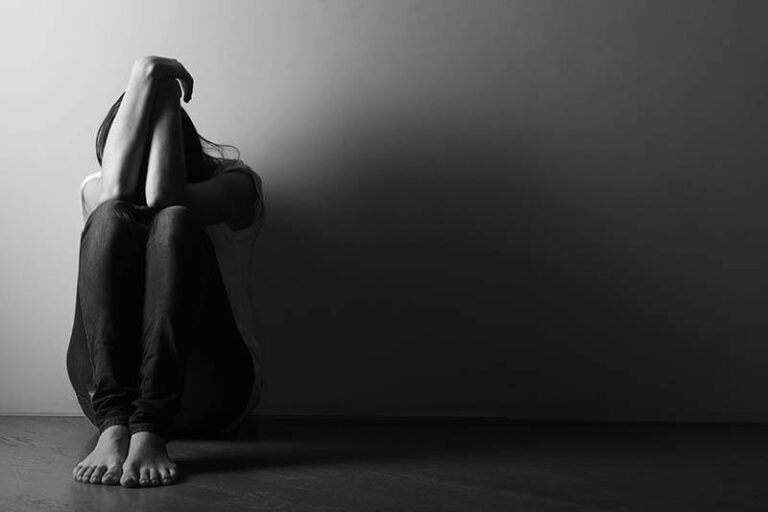16 Ways People Hide Their Sadness & How To Spot It
You know that feeling when something’s off with someone you love, but they swear they’re fine? I don’t mean the obvious stuff, like tears or dramatic rants. I’m talking about the quiet, clever ways people tuck their sadness out of sight—sometimes even from themselves.
I’ve seen it, I’ve done it, you probably have too. It’s not about calling anyone out or psychoanalyzing strangers. It’s about learning to spot the invisible bruises, so maybe we can actually show up for each other—honestly, messily, imperfectly.
Ready? No therapist jargon, just real talk. Here’s how people hide sadness, and how to see past the mask.
1. Forced Happiness

Ever met someone who laughs the loudest in the room, but when you look closer, their smile barely makes it to their eyes? That’s forced happiness—a cover-up so convincing, even their closest friends miss it. The party’s in full swing, everyone’s relaxed, but she always seems just a beat too eager, her jokes rehearsed.
People do this because sadness feels like a burden. They’d rather you think they’re okay than risk sympathy or awkward questions. Watch for moments when their energy drops as soon as the crowd thins.
Sometimes, it’s the person making sure everyone else is having fun who needs the check-in themselves. Ask them how they’re really doing—behind closed doors, not under a spotlight. Forced happiness is exhausting. Some days it cracks, and you notice it in the quiet after the laughter fades.
2. Changes in Sleep Patterns

It’s 3am and she’s wide awake, scrolling through her phone like it’ll give her peace. Or maybe she’s hit snooze for the fifth time—sleep should be her escape, but it’s either too little or too much.
When sadness digs in, it messes with your body clock. Insomnia, restless nights, or sleeping for half the day aren’t just quirks, they’re red flags. Watch for complaints about being tired, even after “plenty” of rest.
If your friend always claims to be exhausted or jokes about living in bed, believe her. Sadness doesn’t respect sleep schedules. Every so often, the body can’t rest when the mind won’t let go.
3. Appetite and Weight Fluctuations

There’s a weird silence in the kitchen. She either picks at her food like it’s a chore or she’s raiding the pantry again, not even tasting what she eats. Appetite and weight swing both ways when sadness settles in.
It isn’t always dramatic weight loss or gain, but those little changes—skipping dinner for days, suddenly obsessed with comfort food. It’s the baggy clothes, the new snacks stashed everywhere, or the untouched lunches.
Ask gently if you notice her eating habits shifting. Sometimes food is the only thing she can control when everything else feels upside down. The plate says a lot, even if she won’t.
4. Increased Substance Use

Not every glass of wine is a red flag, but when the bottle empties faster than usual, pay attention. She might joke about needing a drink to “unwind,” but the habit sticks around long after the stress should fade.
Some people reach for alcohol, others for something stronger or even just cigarettes—anything to numb sharp edges. These rituals sneak in quietly but gradually become a crutch.
If you notice her making excuses to drink alone or using substances as her go-to comfort, don’t shame her. Just ask what’s really weighing her down. Occasionally, it’s easier to talk when the bottle’s closed.
5. Negative Self-Talk

You know that voice, the one that says, “You’re not enough?” At times, she says it out loud, but mostly, it’s whispered in private. Negative self-talk is brutal—sabotaging confidence before anyone else gets the chance.
Listen for offhand comments: “I’m such an idiot,” or “I always mess things up.” Now and then, it slips out as sarcasm, or as a punchline to her own joke.
If you hear her putting herself down more than usual, pause and remind her of her worth. The mirror is a battleground for some of us. Those sticky notes? They’re reminders of a war you can’t see.
6. Fatigue

She looks like she’s carrying bricks instead of a purse—slow steps, slumped shoulders, eyes that refuse to sparkle. Fatigue isn’t just feeling sleepy, it’s a heaviness that seeps into everything.
You might mistake it for laziness or burnout. She drags through the day, skips plans, and blames it on being “just tired.” But no amount of coffee shakes off this kind of weariness.
If she’s always running on empty, even when she’s supposed to be recharged, check in. In certain moments, tired isn’t about sleep at all. It’s what sadness does when it decides to move in.
7. Pessimism

Ever notice how some people can find the cloud in every silver lining? That’s not just a bad mood—it’s sadness with a pessimistic mask. She shrugs off hope, cracks jokes about things going wrong, and expects disappointment like it’s a guarantee.
You might hear her say, “Why bother?” or “Things never work out for me.” It isn’t drama, it’s her shield against more letdowns.
If her world always seems a little grayer, ask what she’s afraid to hope for. On occasion, being heard is the first color that comes back.
8. Loss of Interest in Activities

She used to light up talking about her hobbies, but now her guitar gathers dust, or her running shoes never leave the closet. Loss of interest isn’t laziness—it’s sadness turning the volume down on joy.
You suggest an outing or an old favorite, and she politely declines, again and again. There’s a missing spark and she barely pretends to care anymore.
Check in when she stops showing up for things she loved. She wants to care but just can’t find the energy. The bench is easier than the game, but it never feels the same.
9. Physical Complaints

It starts with headaches or stomachaches that don’t have a clear cause. She bounces from doctor to doctor, blood tests always “normal,” but the pain is real to her.
Physical complaints are sadness that takes a shortcut through the body. The aches and pains become her way of calling for help.
Be gentle if she’s always feeling unwell. Her body is crying out because her heart feels too vulnerable to speak up. Listen, even if the symptoms don’t make sense on paper.
10. Anger or Irritability

You know those people that snap over nothing—like a spilled coffee or missed text? Once in a while, anger is sadness in disguise. It’s easier to lash out than to admit you’re hurting.
She might pick fights, get annoyed at small things, or seem “on edge” all the time. Underneath, there’s usually a wound she hasn’t named. Believe me, I’m speaking from experience.
If her temper’s running hot, ask what’s really behind it. Sadness leaks out sideways and anger is just the loudest alarm it knows how to set.
11. Social Withdrawal

She goes from always texting first to leaving group chats on read. Social withdrawal isn’t about being busy, it’s sadness telling her the world is too much.
Plans get canceled, calls ignored, and she says she just needs “me time.” But weekends alone stretch into weeks, and you start to wonder where she went.
If someone disappears into their own world, reach out gently. The hardest thing for her to admit is that she doesn’t want to be alone—she just doesn’t know how to ask for company.
12. Overcompensation with Humor

She’s the life of the party—quick with a one-liner, never missing a punchline. But some jokes hide a truth too raw to say out loud. Humor becomes her shield.
If you catch her laughing a little too hard, or using humor to dodge real questions, pay attention. Sometimes, the funniest people are fighting sadness backstage.
Pull her aside and ask if she’s okay, really. The bravest thing isn’t always the joke—it’s letting someone see the person behind it.
13. Overly Critical of Others

She’s the one pointing out every flaw, never satisfied, always finding something to fix. Overly critical behavior isn’t about high standards—it’s sometimes a mirror for her own inner turmoil.
If she’s harsh on others, it might be because she’s even harsher on herself. Sadness gets loud when it’s projected outward.
Don’t take it personally if her words sting. Instead, ask if something else is bothering her. She needs help turning that sharpness inward into honesty, not harm.
14. Avoidance of Personal Questions

You ask about her weekend, and she dodges the question, shifting the conversation back to you. Avoidance isn’t shyness—it’s sadness trying to stay hidden.
Watch for quick deflections, sudden jokes, or stories that never really answer what you asked. She’s a master at steering away from anything real.
If she never lets conversations get personal, show her you’re a safe space. The truth is more than she can say out loud, but she’ll appreciate someone willing to listen without pushing.
15. Constant Busyness as a Distraction

Her schedule is packed—meetings, errands, calls, gym, more meetings. She’s always “too busy,” not because she loves chaos, but because stillness is terrifying when sadness is lurking.
Watch for the friend who never sits still or always has a new project. She’ll help everyone else before she ever stops to ask herself why she’s running.
Offer her a quiet moment, or invite her for something slow. In certain moments, distraction is the only way she knows how to keep sadness at bay.
16. Difficulty Accepting Compliments

She does something amazing, but shrugs off the praise like it’s no big deal. Compliments make her squirm and she’s quick to change the topic or downplay her achievements.
It’s not modesty. It’s sadness that convinces her she doesn’t deserve good things. The more you praise her, the more uncomfortable she seems.
Keep encouraging her, but don’t force it. Remind her that kindness is meant for her too. Once in a while, letting compliments sink in is the first step toward healing.







